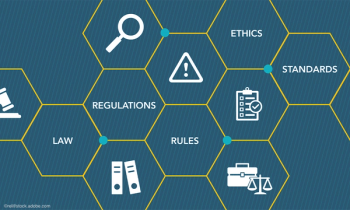
Why Physicians Need to Prioritize Fraud and Abuse Compliance
If you rated your top 10 day-to-day medical practice concerns, what would make the cut? Malpractice certainly would. Fraud and abuse compliance probably would not.
If you rated your top 10 day-to-day medical practice concerns, what would make the cut? Malpractice certainly would. Fraud and abuse compliance probably would not.
Perhaps it should.
A Dallas-area physician recently made headlines for masterminding the largest Medicare fraud scheme by a single physician in history - a $374 million conspiracy to defraud the federal government. If convicted, the physician could spend the
Of course, this is an extreme case, and the physician’s intent to commit fraud appears evident. But even a lesser, more innocent offense - such as a simple billing or coding mistake made repeatedly by your staff - could cost you. Lots.
New rules written into the Affordable Care Act, for instance, require that you return identified overpayments to Medicare and other federal payers within 60 days.
“These [overpayments] can be very significant,” Todd Rodriguez, a healthcare attorney with Fox Rothschild, LLP in Exton, Pa., told Physicians Practice. “If you’ve been billing improperly for you know, two or three or four years, and the government comes back and says you know, you owe us $150,000, there’s no insurance that’s going to pay that for you. You’re going to have to pay it.” And you’re going to have to pay it back within a matter of weeks.
In addition, it’s becoming more and more likely that one of your mistakes could be identified. New technology is making it easier for enforcement agents to identify incorrect billing and claims patterns.
It’s working. HHS recently announced that the government’s healthcare fraud prevention and enforcement efforts resulted in the largest amount
But it’s not all bad news for physicians. Unlike with malpractice, you have more control over preventing fraud and abuse noncompliance.
In other words, the likelihood of suffering a malpractice lawsuit often depends on the patients you see, while the likelihood of violating fraud and abuse depends only on you and your staff. As long as you comply with the related statutes and policies, you should be fine.
To ensure you are complying, visit the OIG website. It includes a number of
And stay tuned. Later this month Physicians Practice will post a series of podcasts on the key statutes addressing fraud and abuse. During each podcast, Rodriguez will define the statutes in layman’s terms, alert you to common missteps you could be making, and advise you regarding how to maintain continual compliance.
For more information on fraud and abuse and how to avoid violations, view these recent blog posts from Practice Notes blogger and attorney Ericka Adler:
• Avoid Self-disclosure to CMS: Plan an Annual Legal Audit at Your Practice• Distribution of DHS Income for Physicians: Avoid ‘Stark' Consequences• Physicians Selling Products: Legal and Ethical Considerations• Oops, You’re Violating HIPAA and Didn’t Even Know It• For Physicians, Sometimes It's Better Not to Give, Or Receive
Newsletter
Optimize your practice with the Physicians Practice newsletter, offering management pearls, leadership tips, and business strategies tailored for practice administrators and physicians of any specialty.






